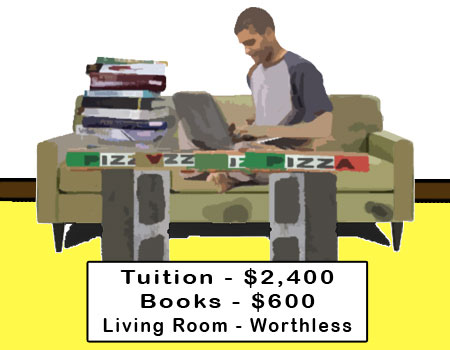State’s lack of support costs society more than an education
Higher education has become a realistic and tangible goal for more and more students in this country over the past few decades, but at what cost?
There are now more college students and college graduates than ever before in our nation’s history. With a declining job market, a credit crisis and rising national debt, enrolling in college, university or technical school is becoming more and more costly.
As a result, more students and their parents are resorting to student loan programs to fund their futures and our future as a nation.
The University of Houston-Clear Lake Web site and recruitment materials proudly advertise this institution provides, “Respected, affordable and accessible education.” The credibility of this claim diminishes as education becomes less affordable and less accessible as tuition and fees increase each year.
In the “Land of Opportunities,” opportunity is dwindling, debt is mounting, and students are suffering. Two-thirds of students graduating with bachelor’s degrees did so with student-loan debt, approximately $23 thousand on average.
The National Center for Education Statistics at the U.S. Department of Education also estimates about two in 15 parents borrowed money to fund their children’s college education.Graduate and professional students borrow even more. Forty-one percent of UHCL students are pursuing a graduate degree. With the additional cumulative debt for a graduate degree typically ranging from $30,000 to $120,000 nationally, students with graduate or professional degrees face years of repayment for an education that costs exponentially more than it did in the past with substantially less financial assistance to ease the blow.
With declining state support for education, operating costs for colleges and universities must come from somewhere. Since tuition deregulation in 2003 under Gov. Rick Perry’s administration, Texas legislators have identified students as that revenue source. Now students are forced to the carry the burden of financing even more of the cost of higher education. While education enormously benefits the students receiving it, it benefits society far more through the contributions made by educated individuals.
The boards of regents must reign in the costs of attending state schools. The 181 individuals entrusted with protecting our future will convene next year. During the next session of our Texas Legislature, elected officials must address the state of higher education finance.
Last month, students, faculty and staff from across the nation protested the declining state support and rising cost of education. Our demands, however, are either not being heard or are being ignored.
Tuition and fees have increased at every university in this state. Administrators are in the unenviable position of raising tuition and fees without student support to augment waning state support.
At UHCL fees have increased to support student services, many of which students do not even realize are available. New fees and new tuition charges have been created for the upcoming academic term. Our government must become more responsive to our need for affordable education.
Most students on this campus, and on campuses across the state, neither know nor care about cost centers, fee allocation committees, revenue sources or the myriad classifications of tuition or fees; but what students do care about is the quality and accessibility of their education.
There is a student loan crisis in this country. Students have been told since kindergarten, “Education is the key to success.” This is not told to young students as a platitude.
Sitting in classrooms across America are our future scientists, doctors, teachers, counselors, Supreme Court Justices, attorneys general, presidents, engineers, city planners and entrepreneurs. Their education is the key to our future.
As affordable education becomes less accessible and the cost of pursuing it becomes more expensive, our future hangs in the balance.



Comments are closed, but trackbacks and pingbacks are open.